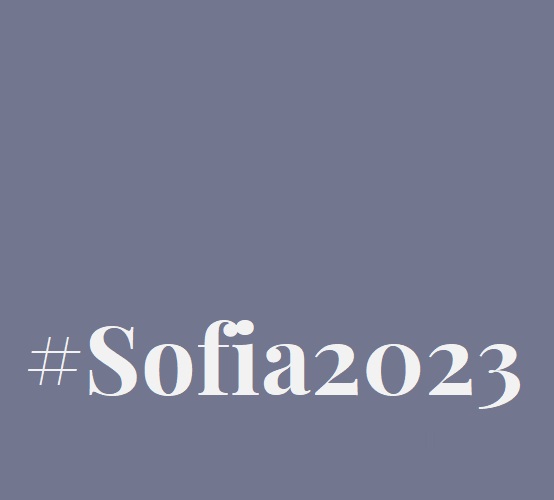Finding a Language to Address the Crisis

The Sofia Debate on Europe, 24–26 February 2023
The Sofia Debate on Europe opens on a portentous date in recent European history, exactly one year after Russia launched its full-scale invasion of Ukraine. But it is also nine years since the Revolution of Dignity culminated on the Kyiv Maidan and not-so-mysterious “little green men” started to appear on the Crimean peninsula, marking the real start of the Russo-Ukrainian war.
If Europe needed a reminder of how critical the current geopolitical constellation actually is, it certainly got one when Moldovan prime minister Natalia Gavrilita on 10 February announced that she will step down, throwing the EU candidate country into a political crisis. What triggered Gavrilita’s resignation was news about an intercepted Russian plan to topple the pro-Western government. Since then, a new EU-friendly government has been put in place in Chisinau, but pro-Russian protests grow stronger by the day.
More than anything else, this was a reminder that while things might not have gone according to plan for the Russians on the battlefield in Ukraine, Russia’s hybrid warfare is making progress elsewhere in Europe.
Just a few weeks before the events in Moldova, the investigative journalist Christo Grozev had addressed the parliament in Sofia, claiming that Russia had plans for a similar coup in Bulgaria in 2016. The scheme, allegedly orchestrated by the Russian military intelligence agency GRU, were stopped in time, but Bulgaria’s volatile position – inside the European Union, but heavily exposed to Russian influence – remains conspicuous. Even more so after 24 February 2022, when Russia obliterated what still remained of the post-Cold War European order.
One of the principles guiding our work with Debates on Europe has been to focus on places where the idea of Europe isn’t taken for granted, places where something is at stake. This was the case already when the first event was held in Budapest in 2012. And it was the case at the Debates in Kharkiv and Saint Petersburg, both taking place after the illegal Russian annexation of Crimea and the occupation of parts of eastern Ukraine, or in Belfast just before Brexit. However, never before in the history of this series have the stakes been as high as they are now, when we gather in Sofia.
Few places could provide a better setting for trying to understand the challenges facing European societies today than the Bulgarian capital of Sofia. Here many of the current conflicts become clearly visible. In April, the country will hold its fifth parliamentary election in just two years, and the ability of any of the participating parties to form a stable government can’t be taken for granted.
As one of Bulgaria’s finest writers, Georgi Gospodinov, has noted, a polarized society like the Bulgarian is characterized by an almost total breakdown of communication. The language for a common conversation about past, present and future is simply missing. Bulgaria is certainly not alone in this predicament.
The Sofia Debate on Europe aims to open up a space for exchange in which the language Gospodinov so painfully pines for can be formed – the means to grasp a cruel, conflictual reality, to formulate solutions and, indeed, negotiate the future, not only politically, but socially and culturally as well.
Such a conversation, such a debate on Europe may, however, never pretend that everything can be discussed from a neutral point of view or that all opinions are equally acceptable.
In September 1939, at a time when Europe’s darkest totalitarian forces seemed to be marching towards victory, Thomas Mann was sitting in Stockholm, writing on a speech to be held at the upcoming International PEN Congress. The title of his speech was Das Problem der Freiheit – “The Problem of Freedom”. We must dare to use those grand words again, Mann wrote. Words like ‘freedom’, ‘truth’ or ‘justice’. And we must relearn to use them without the sceptical distance or even irony with which they have been impregnated for decades. If we don’t, then we leave the field open for exactly those forces that show nothing but contempt for international law, spread lies about both past and present, and threaten to destroy freedom altogether.
Thomas Mann could never deliver his speech. The PEN Congress in Stockholm was cancelled after Hitler had invaded Poland. But the text was promptly published by Bermann-Fischer Verlag, at the time in exile in Sweden.
If there is something to be learned from Thomas Mann’s reaction to the dire situation he found himself and the world in, it is surely not as simple as to wallow in puffed up pathos. No, the lesson is about insisting on the real values embedded in words and to try to find a proper language with which to address the crisis.
The Sofia Debate on Europe provides an opportunity to do exactly that. And there is a lot at stake.
Antje Contius, Director of the S. Fischer Foundation
Carl Henrik Fredriksson, Programme Director of Debates on Europe
Dessy Gavrilova, Chairwoman of the European Network of Houses for Debate “Time to Talk”
Ernst Osterkamp, President of the German Academy for Language and Literature